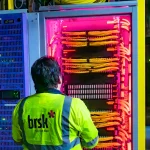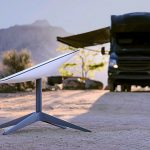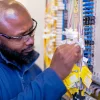DCF Summarises Progress of UK Telecoms Operators Toward Net Zero

A new report from the Digital Connectivity Forum (DCF), which is an industry think-tank for the Government, has summarised how much progress the UK telecoms (broadband, mobile etc.) market has made with respect to sustainability and Net Zero (i.e. the goal of an organisation to remove as many carbon emissions as they produce) – with nearly all of the major operators having set targets.
The report, which surveyed 12 major telecoms companies during May 2024 (e.g. network operators, ISPs and vendors), revealed that 11 out of 12 have set some form of Net Zero target and 75% are using validated science-based targets. This level of target setting was found to be both a “positive signal of the continued commitment to net zero and a sign that the telecoms sector is recognising and responding to climate concerns“.
Other key findings included:
➤ 70% identified renewable energy transition as the largest driver for operational emissions decrease to date.
➤ 5 out of 11 identified fleet transition as a potential large-scale driver for scope 1 & 2 reductions.
➤ 50% have fleet transition targets.
➤ 90% identified green skills gaps as a barrier.
The report also highlights interesting areas such as the potential for certain drivers to decrease overall emissions, including fleet transition, renewable energy switching, fluorinated gas reduction from networks and data centres, and the use of data analytics to focus sustainability strategy. But unfortunately, we only get small bits and pieces of data from the report, and it doesn’t compare the progress of each company, which would have been useful.
Advertisement
Will Ennett, Chair of the DCF’s Climate & Sustainability Work Group, said:
“The members of the Digital Connectivity Forum Climate and Sustainability Working Group have recognised the urgency of climate change. As we face a world that is rapidly changing, many companies are already taking impressive action to curb their environmental impact and make a difference. I want to take this opportunity to thank all members for their enthusiastic collaboration, and to the Digital Connectivity Forum team for their tremendous dedication in creating this report.”
The full report will shortly be available at this link (PDF).
Mark is a professional technology writer, IT consultant and computer engineer from Dorset (England), he also founded ISPreview in 1999 and enjoys analysing the latest telecoms and broadband developments. Find me on X (Twitter), Mastodon, Facebook, BlueSky, Threads.net and Linkedin.
« BT Wholesale Investigating One Touch Switch Problems with UK ISPs UPDATE2





















































They should also consider the whole costs incl. enviromental for mobiles and repeated ‘app’ updates; 1000s if not millions of users and devices having to / being forced to download MB’s ‘updating’ apps, not to mention including the waste/consumption of bandwidth and all the energy/co2/heat produced wasted from ‘continuous delivery’ of ‘improvements’ rather than a much less frequent update cycle.
I would say get it right first time, rather than what seems to be a perception of need for monthly ‘feature’ additions, (in many cases of frippery rather than any well considered functionality needs (that for some reason wern’t there in the first place) ).
Years ago EDS ran adverts peddling their ‘adaptabilty’ and ‘dynamicism’ using the example of building /develping an aeroplane in flight…
I often wondered where they got the undercarrige from for a successful landing. Mind I’d not have flown with them, I’d rather fly a with fully developed and proven plane rather than ad-hoc/monkey it in-flight.
Change is only good when very well considered, functionality not flawed, suffering oversight (delinquency) in a sop to ‘expediency’, design and solutions tested, then well communicated, executed and measured and as delivered costed (which these days should include total consumptions and emissions), anything less is just poor, wasteful or damned right rude (imho).
It should allways be remembered there is little free energy, its only a conversion from one form to another, robbing peter to pay paul (and with transaction losses!), losses, undesired energy / emmission byproducts. Energy in always = energy out in some form or other, prevent unnecessary/wasteful consumption of resources in the first place, should be the thought.
Conservation avoiding waste(age) in the first place is better, prevention/reduction of the problem(s) rather than creating ‘industries’ in cure of the symptoms that do not adress the underlying problem (just like water companies…).
Good luck transitioning fleet to EVs when the UK has the most expensive energy costs in europe with no policy in sight to reduce it
It cost me 7p per kWh to charge my EV overnight which is about 1.75p per mile. Far cheaper than petrol or diesel.
The UK doesn’t have the most expensive energy costs in Europe.
It costs me about £4 to recharge my EV. It’s a no brainer for businesses to transition to electric vehicles. The lest time I have field techs working for me they averaged about 25 miles a day on their vans. I want them working, not driving. EVs are a perfect match.